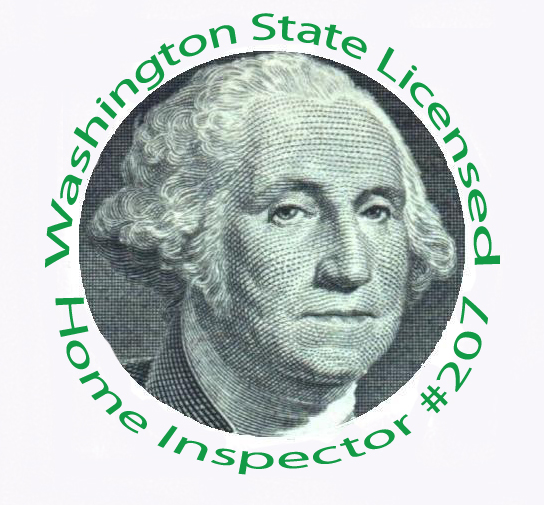National Radon Awareness Month
National Radon Awareness Month. A home inspection is technically an optional  inspection when buying a home. I say technically optional as it isn't required to get a loan, and I'm not aware of any town or city which requires one to purchase a property. With that said I personally would never buy any property without having a home inspection done on it.
inspection when buying a home. I say technically optional as it isn't required to get a loan, and I'm not aware of any town or city which requires one to purchase a property. With that said I personally would never buy any property without having a home inspection done on it.
I just read that January is National Radon Awareness Month and feel this is a great time to stress the importance of having a licensed home inspector inspect the home you are buying BEFORE you buy.
The home my wife and I bought a few years ago was found to have an elevated radon level, something that would never have been found if we had had a contractor buddy walk through the house with us. My children would play in our basement and be exposed to radon every day if I had had "my uncle" the contractor walk through our house first. Luckily we had a home inspection done and as a result a radon mitigation system was installed, reducing the radon to a "safe" level (below what the EPA provides as guidance as "safe")
National Radon Awareness Month is a great time to talk about the potential dangers of radon, you can read more are these sites, EPA Radon, Radon @ Wikipedia, The Radon Information Center. Official announcement from the EPA dsignating January National Radon Awareness Month. The goal of National Radon Awareness Month is to encourage citizens to test their homes for radon and to spread the word to friends and family on the dangers of radon.
If you are buying a house in Connecticut, I suggest you visit the Connecticut Association of Home Inspectors and select one of their licensed members to inspect the home.
What does a home inspection consist of? What can you expect to find out? After all National Radon Awareness Month has focused this article on radon, but there is so much more to a home inspection. Check out this post on home inspections for a quick overview. Here is a site where you can find more detailed information on what to expect in a home inspection.
Sure you could skip the inspection, I wouldn't if it was my money or my families safety. Have a home inspection done and test of radon as well, it is National Radon Awareness Month!
If you would like to talk about your mortgage options for the house you would like to buy during National Radon Awareness Month or not, call me at (860) 306-8029.
The longer I am in this field of home inspection, the more apparent it becomes to me that most buyers, or sellers contracting for a pre-listing inspection, have no clue as to what it is that a home inspector is looking for or what that inspector will be reporting on.
Home inspections and standards of practice vary from association to association and from state to state. My description of the process is general but it should be helpful for those who are unfamiliar with the field of home inspection. In this synopsis, I am not attempting to list every system or component that might, possibly, be viewed during the course of a home inspection but this should provide a good overview of the process.
A home inspection is a non-technically exhaustive, primarily visual, inspection of a home and it's systems and components.
An inspector will not be spending much time looking at minor cosmetic details, or checking phones, cable, outdoor garden lighting or built-in vacuum or speaker systems. Those items will almost certainly be excluded.
Some people think the inspector will be overwrought about housekeeping and cosmetic details -- interior paint, whether or not the pictures on the wall are straight. I have seen the seller tidy up like crazy and then the deal hit a snag because of a totally unexpected, and serious, structural or electrical issue.
The inspection flow:
The site and the exterior, including the foundation, siding or other cladding, exterior doors, decks, stairways and rails, driveways and grading of the lot will be inspected. An inspector should report defects, such as slope or grade that routes runoff water against the home, foundation cracks or damage, rot or problematic conditions of cladding, unsafe decks and stairs, defective doors.
While the routine may vary, from inspector to inspector, the roof might be the next stop. On the roof the inspector will get a second look at some of the components he or she probably got a cursory view of from down below -- gutters and downspouts, chimneys, plumbing stacks, vents and roofing materials. It is not always possible to traverse every roof. But, when it is possible to do so safely and without damage to the roof, the inspector should go up on the roof. There are defects that can only be seen from up above. If the inspector cannot go on the roof, it will be viewed, as best as can be, from the eaves or from the ground.
The inspector will inspect attached garages (not usually detached garages unless additional fees apply), verifying that there is a firewall that protects the home and making sure that any powered vehicle doors have proper safety features such as sensor eyes and auto-reverse.
Often the furnace and water heater will be located in an attached garage so they may be inspected when the inspector is in the garage. The inspector will, with some limitations, check the safety and function of water heaters and furnaces/heating devices. He or she should make sure that garage appliances are protected so they cannot be hit by a forward moving automobile. This protection is often provided by a bollard. The inspector should measure the water temperature and report temperatures that are unsafe -- such as a temperature over 120 degrees F, which is conducive to scalding burns.
Often the attached garage will be the site of the attic hatch. A home inspector should try to find the various attic hatches. If it can be done safely and without risking damage to the property or insulation, the attic should be traversed.
The attic can hide many secrets that should be exposed. There might be leaks from the roof above, exhaust fans could be blowing moist air into the attic. There could be ventilation issues, old or unsafe wiring, or even rodent activity in the attic. The inspector should note whether or not the attic is insulated.
Somewhere, in this general sequence of events, the inspector will inspect the electric system. Standard procedures include looking at the service entrance and removing the cover from the electric panel and viewing the wiring inside of it.
The inspector should report visual defects in the panel, report if there is a grounding electrode in place and report the placement and function of GFCI receptacles -- the kind of receptacle that gives extra protection in wet environments. In newer homes, there should be AFCI breakers that protect against electrical fires at bedroom receptacles and lights. The inspector should check most receptacles and many light switches, ceiling fans, etc. It is not always possible to check every switch or receptacle, but an inspector should get to many of them.
About now, we are ready to move inside the home. Inside the house, the inspector -- along with looking at floors, walls, ceilings, doors, windows and stairs -- should check the plumbing, including under sinks and at tubs and showers. A primary emphasis is on drains, traps and whether or not there are signs of leaks.
Toilets will be flushed and checked to make sure that they are tight to the floor and that they are not leaking -- often leaks are visible as a result of stains on or under flooring. Regarding plumbing, when the inspector was outside, he or she should have checked the water pressure at a hose bibb to make sure it was in the normal range of 40 to 80 PSI.
Many inspectors will operate and inspect the dishwasher, the refrigerator, the range, the microwave and some will even operate laundry appliances. Certainly, an inspector will try to view connections and operate gas fireplaces or look inside wood stoves and fireplaces. If the wood burning devices look to be full of soot or creosote, then an inspector will call for service or further evaluation by a qualified chimney sweep. Since we are talking fire safety, the inspector will, when inside the home, verify the presence of smoke detectors.
Last, but not least, the inspector will inspect the sub-structure of the home. This can be merely a slab, which often leaves little for an inspector to view. Or it might be a basement or a crawl space that has ample access.
If it is a finished basement, there might be little to report on. However, at an unfinished basement or crawl space, the inspector will be looking at the structure -- posts or columns, beams and joists and many other components -- plumbing pipes, heat ducts, under floor insulation. Especially in a crawl space, the inspector will be alert to signs of damage from wood destroying organisms or rodent activity. Often, in a sub-structure area, the inspector will locate a main water shutoff valve for the home. For sure, when it can be found, the inspector should report the location of the main water shutoff valve and, also, the location of the main gas or fuel shutoffs.
Again, the methods of inspection vary from inspector to inspector and this article is not intended to describe how every inspector does the job. When the inspection is complete, the inspector should, in a reasonable time-frame, provide the client with a concise and accurate written report that has photos and describes the conditions that were found at the home at the time of the inspection.
Thanks for stopping by,
Steven L. Smith










Comments(0)